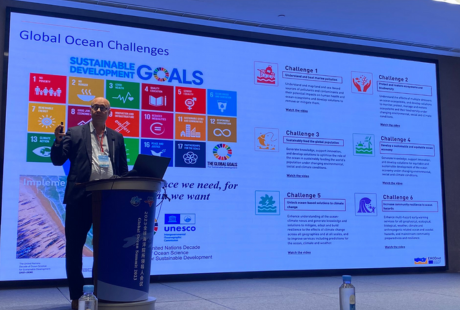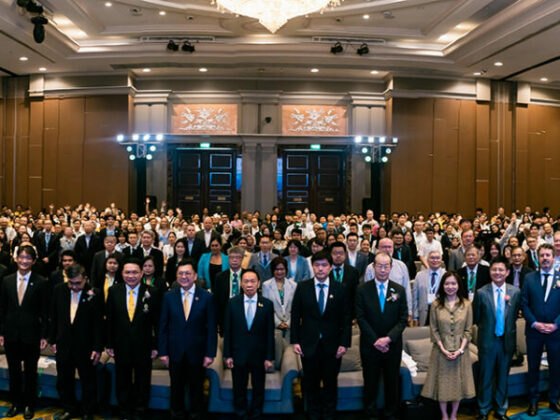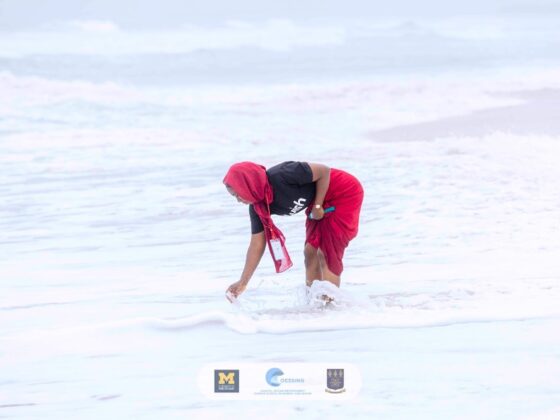An open ocean with equitable access to data, information, and knowledge is key for effectively managing, conserving, regulating, and utilizing ocean resources. As part of Ocean Decade Challenge 8, the United Nations Decade of Ocean Science for Sustainable Development 2021-2030 (the ‘Ocean Decade’) seeks to create an adaptive and dynamic digital representation of the ocean to enhance decision-making and support sustainable ocean management.
Today, the vast volume of the ocean is neither adequately mapped nor observed, nor is it fully understood. Our knowledge of space far exceeds that of the ocean – meticulous mapping and detailed satellite imagery have brought the Moon, Mercury, Ceres, nearly all of Venus, and the Red Planet, located 140 million miles away, within our grasp. In stark contrast, only 24.9 per cent of the seafloor has been mapped to date, a global effort spearheaded by the Ocean Decade Programme Seabed 2030.
To generate solutions for dynamic and sustainable ocean management, we need relevant, timely, reliable, and accessible ocean data, information, and knowledge. As part of the Vision 2030 process launched by the Ocean Decade, Working Group 8 leads the effort in tackling Ocean Decade Challenge 8 by identifying gaps and priority needs to allow development of a comprehensive digital representation of the ocean, which provides free and open access for exploring, discovering, and visualizing past, current, and future ocean conditions in a manner relevant to diverse stakeholders.
Two expert co-chairs of the Working Group, Jan-Bart Callewaert, lead of the Data Coordination Office (DCO) for Ocean Data Sharing, and Paula Cristina Sierra-Correra, co-chair of the International Oceanographic Data and Information Exchange (IODE) programme of UNESCO’s Intergovernmental Oceanographic Commission (IOC) and Coordinator at the Marine and Coastal Research Institute ‘José Benito Vives de Andreis’, bring their extensive experience and expertise in ocean data sharing and marine science.
As a diverse multidisciplinary team comprising oceanographers, social scientists, marine biologists, computer scientists, engineers, and geo-data specialists, the Working Group ensures that a broad range of perspectives and a comprehensive approach are considered in the development of a strategic ambition for Challenge 8. Indeed, determining what success would look like by 2030 is a task not to be underestimated, considering that one of the first discussion points for this Group was the need to define what is meant by “a digital representation of the ocean”. To clarify this concept while acknowledging the complexities of ocean data management, Working Group 8 is drafting a white paper that will be launched at the 2024 Ocean Decade Conference in Barcelona.


Despite this huge challenge, Paula Cristina Sierra-Correra remarked that from the first Working Group meeting, “the commitment and engagement of the members in this process was very clear. This, combined with their complementary expertise, makes us very confident that we will deliver an ambitious but achievable strategic vision in our white paper.”
In keeping with the principles of the Ocean Decade to be transformative and leave no one behind, the Group is exploring how advanced technological innovation can be used to create products that are ultimately accessible and useful to the widest possible communities of users. Based on the identified priority needs of other Challenges in relation to Challenge 8, the experts will ensure that the strategic ambition builds on what already exists and ultimately delivers transformative solutions for these priority ocean challenges. “The cross-cutting approach in developing the white paper and its strategic ambition are very important in advancing the process,” noted Jan-Bart Calewaert. “Through co-design and alignment with the ambitions of the Working Groups dedicated to other Challenges, we can identify a common measure of success on the road to 2030 and beyond.”
The Group’s discussions to date have focused on identifying users and their needs, integrating diverse data types, fostering interoperability, and considering the needs and knowledge contributions of diverse communities. The white paper will also delineate concrete milestones and targets that must be in place in the next decade for the envisaged success to be a reality.
The outcomes of this process will feed into the Ocean Decade Data and Information Strategy, aimed to catalyse a solution-oriented, global transformation for the digital ocean ecosystem we need.
Get involved in the Ocean Decade transformative journey to 2030!
Review of the draft white papers developed by the Working Groups will be launched in early 2024. Your insights, feedback, and expertise will contribute to shaping the strategic ambitions and determining the milestones for each Challenge, ensuring a diverse and inclusive approach. More information will be available soon on the Ocean Decade website.
The final draft versions will be presented and debated during thematic ‘Science Solution Forums’ at the 2024 Ocean Decade Conference in Barcelona, a pivotal event for the Vision 2030 process.
Click here to meet Working Group 8 and find out more about the Vision 2030 process.
For more information, please contact:
Vision 2030 Team (vision2030@unesco.org)
***
About the Ocean Decade:
Proclaimed in 2017 by the United Nations General Assembly, the UN Decade of Ocean Science for Sustainable Development (2021-2030) (‘the Ocean Decade’) seeks to stimulate ocean science and knowledge generation to reverse the decline of the state of the ocean system and catalyse new opportunities for sustainable development of this massive marine ecosystem. The vision of the Ocean Decade is ‘the science we need for the ocean we want’. The Ocean Decade provides a convening framework for scientists and stakeholders from diverse sectors to develop the scientific knowledge and the partnerships needed to accelerate and harness advances in ocean science to achieve a better understanding of the ocean system and deliver science-based solutions to achieve the 2030 Agenda. The UN General Assembly mandated UNESCO’s Intergovernmental Oceanographic Commission (IOC) to coordinate the preparations and implementation of the Decade.
About the IOC/UNESCO:
The Intergovernmental Oceanographic Commission of UNESCO (IOC/UNESCO) promotes international cooperation in marine sciences to improve management of the ocean, coasts and marine resources. The IOC enables its 150 Member States to work together by coordinating programmes in capacity development, ocean observations and services, ocean science and tsunami warning. The work of the IOC contributes to the mission of UNESCO to promote the advancement of science and its applications to develop knowledge and capacity, key to economic and social progress, the basis of peace and sustainable development.


